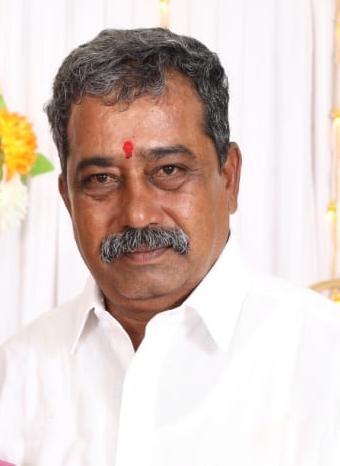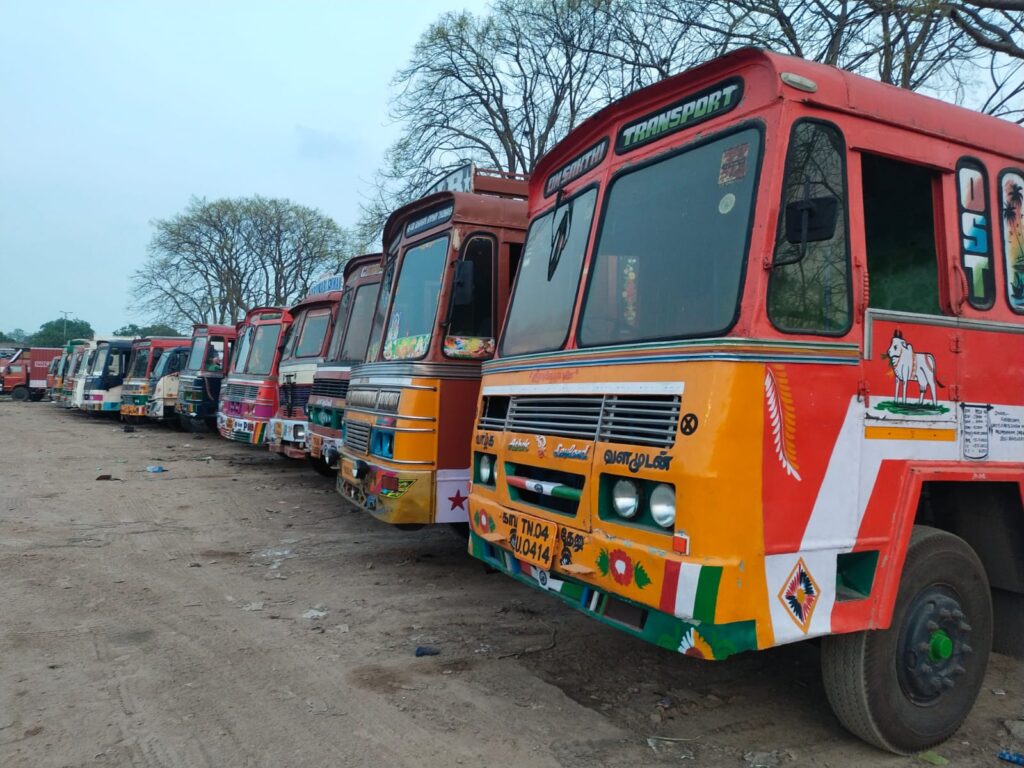
M Stephen talks to D Janakiraman, Secretary of Tamil Nadu Edible Oil Tanker Lorry Owners Welfare Association to know about the history of the association, its functioning, fleet capacity, clients, issues and potential solutions
How was Tamil Nadu Edible Oil Tanker Lorry Owners Welfare Association formed and when?
The Tamil Nadu Edible Oil Tanker Lorry Owners Welfare Association was formed in 1998 at Madhavaram, Chennai. Our association has been functioning for the past 25 years. The purpose of starting this association was to ensure the safety of our vehicles and also to set right the disunity among lorry owners. If any oil tanker lorry owner faced any issue with regards to the vehicle there was none to raise a question on their behalf or they did not know how to deal with the problem. So, we wanted someone to raise questions on our behalf. All these issues led to the formation of our association. Tamil Nadu was the first state to start an association for the edible oil sector in the country. Others started their own associations after coming to know about our activities.
What is the number of fleet capacity you have in your association?
When we started our association our fleet capacity was nearly 400 vehicles. Over the years many vehicle operators have left us and scattered far and wide. Some operators have even changed their business in these 25 years. Now, in 2023 we have only 70-80 fleet operators in our association. We have around nearly 90 big lorry tanker vehicles with 12, 14 and 16-wheeler vehicles in our association. These 80 regular fleet operators are regular members. But when it comes to voting rights all the 400 vehicle fleet operators have the right to vote in our association’s election.
What were the milestones or turning points in the history of your association which really defined the growth and future of your association?
We had an evolutionary period from 1998 to 2008 when our edible oil tanker lorry business was running well. After 2008 the fleet operators or big companies started importing goods from foreign countries. They started their own transport, following which the business of our association’s vehicles began to slide. So, after 2010 we suffered a setback. We could not approach big companies as they had started their own association and were running their own vehicles, which resulted in downslide for our business. But when it comes to the rental of transporting goods from one place to another it’s the big companies who are actually supposed to decide but we are forced to decide on rental charges. So, oil importers are now the dominant force in this sector.

Which are the markets or regions covered by you for the principals that you represent?
We have our reach throughout the country. Now that we have moved to big vehicles our 16-wheeler oil lorry tanker vehicles travel to Delhi and even up to Kashmir. When it comes to rental charges, while transporting goods from Chennai it is the association that decides the transporting charges, but when it comes to returning back with goods from other states it is the company that decides this cost.
Given the major transformation from petrol and diesel engines to electric vehicles, how do you see this change in technology and how will this impact the aftermarket business? How are you preparing your business for this change?
Nowadays all the vehicles are computerised. Earlier it was BS IV vehicles but now they have introduced BS VI vehicles due to high levels of pollution. After BS VI they have introduced electric vehicles. I have no idea what will happen if electric lorries become a dominant force. We are at present struggling with the norms of BS VI. The reason is that we don’t know if BS VI is a failure or has passed the test in the market but despite that transporters are buying BS VI body vehicles, but not tanker lorry vehicles. It will take at least 10-15 years for electric lorries to be launched in India. The initiatives to launch such vehicles may be taken by Eicher, first with smaller vehicles and then the bigger ones. As of now we are unsure about the worth and cost of EVs. Assuming that an electric lorry or bus would cost Rs 4-6 crore, would that high price offset the savings in fuel? Wouldn’t there be the battery cost to consider?
How are you using technology in your business?
We are using a GPRS system in all our vehicles to manage the business efficiently. GPRS is also helping us prevent fuel thefts.
What are the safety standards used in your business?
Earlier we were using MS tankers but we have now shifted to steel so that the consignment of oil remains safe. Steel tankers are easier to clean and maintain. Also, steel tankers are best for transporting edible oil which does not catch fire easily. Only petrol and diesel are highly inflammable. In terms of speed, our drivers do not cross the limit of 80 kmph so as to reduce the chances of accidents and spillages. We also advise our drivers to not drive after midnight up to the morning hours so as to prevent accidents happening from fatigue at the wheel.
What are your future growth plans and outlook for the road transport sector in India?
We have changed from 12 wheels to 14 wheels and from 14 wheels to 16 wheels. And as mentioned earlier, we have changed from MS tank to stainless steel tank. Further changes will be related to the introduction of electric lorries. Another change that may happen is with regards to toll tax. The government has suggested that there should be a system wherein the GPRS will provide data about the kilometres driven by the vehicle so as to aid direct deduction of tax from the company’s account. Our growth plans change with the changes in the transportation ecosystem.